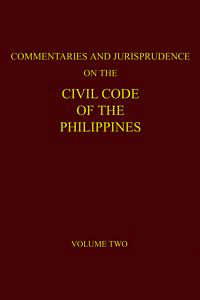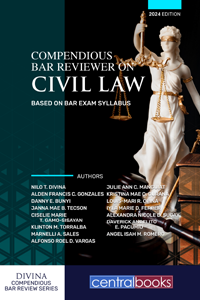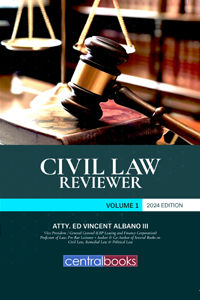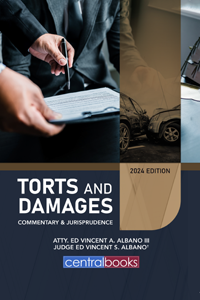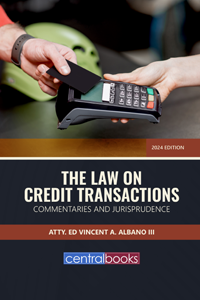- Commentaries and Jurisprudence on the Civil Code of the Philippines Volume 2
- Arturo M. Tolentino, Ph. B., D.C.L.
- Publisher: Central Book Supply, Inc.
- ISBN: 971-16-0220-2
- No. of Pages: 680
- Size: 6"x9"
Description:
Property is an economic concept, meaning a mass of things or objects useful to human activity and which are necessary to life, for which reason they may in one way or another be organized and distributed, but always for the use of man. The right to property is clearly different from property, and is defined as "the judicial tie by virtue of which a person has the exclusive power to receive or obtain all the benefits from a thing, except those prohibited or restricted by law or by the rights of others." The distinctionm however, between ownership and the right to property is more historical than actual. They refer to the same idea, except that right to property emphasizes the vinculum between man and the thing, while ownership refers to the mass of rights over the thing. At present, the two terms are used synonymously and interchangeably.





